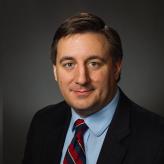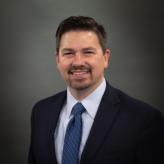Fla. school creates legal scramble with ban on 4th-grader’s Easter egg hunt fliers
TAMPA, Fla. — Alliance Defense Fund attorneys filed a federal lawsuit on behalf of a 4th-grade Florida student Tuesday after his school prohibited him from handing out Easter egg hunt fliers to fellow students during non-instructional time. School officials contend that students “are not allowed to pass out fliers related to religious events or activities” because of two school board policies that the lawsuit challenges as unconstitutional.
“All students should have the freedom to express a message consistent with their beliefs,” said ADF Litigation Staff Counsel Matt Sharp. “To say that an Easter Egg hunt invitation offered from one student to another during non-instructional time is somehow not allowed in America is preposterous. ADF has litigated numerous cases similar to this one, and the law is clear: invitations like this are protected by the Constitution. We encourage the school board to change its policies accordingly.”
In March, the mother of a student at Roland H. Lewis Elementary in Temple Terrace together with other members of the student’s church organized several neighborhood Easter egg hunts for children and their parents in the community. At each Easter egg hunt, children would participate in an egg hunt, play games, have snacks and candy, and hear the biblical story of Easter.
The student and his mother developed simple invitations that he could hand out to other students at school during non-instructional time for the Easter egg hunt that his mother helped organize in his neighborhood, but the school’s principal denied him permission to distribute them even though the school routinely allows other types of invitations, such as for birthday parties.
The ADF lawsuit challenges two Hillsborough County School Board policies behind the Easter egg hunt invitation ban: one that states that fliers distributed by students for religious events “may not contain a proselytizing message (i.e., promote the benefits of the specific religion)” and another policy that prohibits materials that “seek to establish the supremacy of a particular religious denomination, sect, or point of view over any other religious denomination, sect, or point of view.”
“The two board policies are unconstitutional because they ban non-disruptive student-to-student speech based solely on its religious content,” said ADF Legal Counsel Jeremy Tedesco. “Public schools should encourage, not shut down, the free exchange of ideas. Marginalizing students of faith removes an important influence for good from the school community, and removing their voice sends a message to all students that religion is something to be ashamed of.”
David Gibbs, one of more than 2,100 attorneys in the ADF alliance, is serving as local counsel in the case, Gilio v. The School Board of Hillsborough County, filed with the U.S. District Court for the Middle District of Florida, Tampa Division.
- Pronunciation guide: Tedesco (Tuh-DESS’-ko)
ADF is a legal alliance of Christian attorneys and like-minded organizations defending the right of people to freely live out their faith. Launched in 1994, ADF employs a unique combination of strategy, training, funding, and litigation to protect and preserve religious liberty, the sanctity of life, marriage, and the family.
Ref. 37407
Related Profiles


